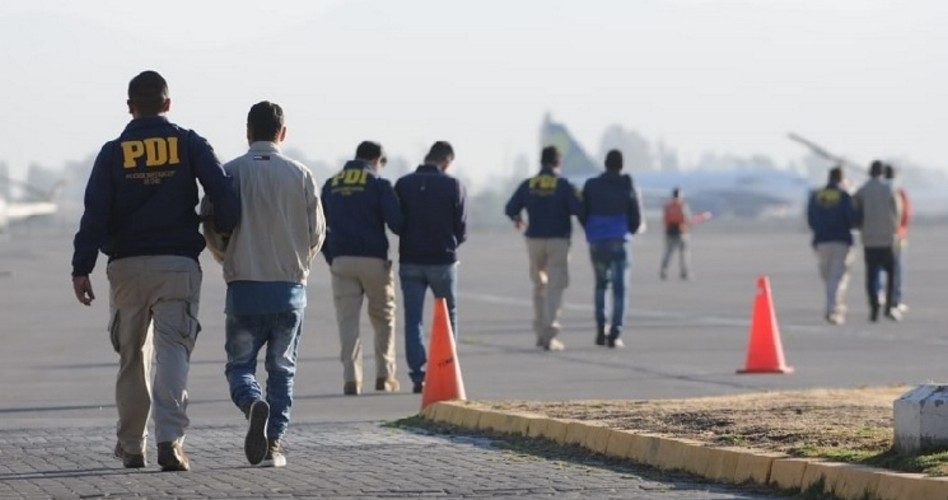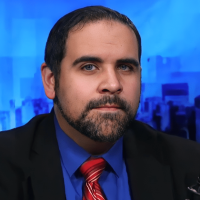
On Monday, Chile expelled a group of 50 foreigners — including 30 Cubans and nine Venezuelans — whom the government accused of inciting protests in the O’Higgins region, located in the southern province of Capitán Prat.
“Violence has undoubtedly been the worst face of the manifestations recently recorded in Chile. A reality of which the O’Higgins region has not been oblivious to, despite the calls from different sectors, including its own citizens, to depose these actions and promote a social agenda that addresses the legitimate demands that triggered the crisis in the country,” a statement released from the government on November 15, 2019 read.
“It is in this context, that of the total of 50 foreign citizens, five were arrested and placed at the disposal of the courts, in part, for promoting lootings, and on the other hand, for being involved in disorderly acts, undermining authorities and lifting barricades, all crimes, which according to the Mayor Juan Manuel Masferrer, are sufficient reasons to decree their expulsions,” the statement concluded.
The arrests and expulsions were carried out by the PDI (Spanish acronym for Policía de Investigaciones, which translates in English to Police of Investigations), which is one of two national police bodies in Chile, the other being the Carabineros de Chile (Spanish for Carabiniers of Chile).
The announcement of these expulsions came days after the senate president of the Chile’s National Congress, Jaime Quintana, announced on Friday morning that the National Congress agreed to hold a referendum on whether to hold a constituent assembly, or people’s constitutional convention, to draft a totally new constitution in order to replace the current Pinochet-era Constitution that was adopted in 1980.
According to Senate President Quintana, the new constitution would bring about a “peaceful and democratic exit to the [current] crisis.” He further went on to describe it as being “a true social contact” that would be “100-percent democratic,” despite the fact it hasn’t even been drafted yet.
“This has become possible thanks to the citizens who have been mobilized,” Quintana added.
Despite there being a center-right majority coalition in Chile’s Senate, Senate President Quintana is a member of the socialist Partido por la Democracia (PPD), which translates in English to Party for Democracy. The PPD only holds four of the 43 seats in the Senate and is part of the minority opposition Convergencia Progresista (Spanish for Progressive Convergence) — a coalition of outwardly socialist parties.
In fact, the PPD is also one of Chile’s three national affiliates of the Socialist International — an international alliance of socialist and Marxist political parties from around the world. The other two Chilean affiliates of the Socialist International are the Partido Radical Socialdemócrata (Spanish for Social Democrat Radical Party) and the Socialist Party of Chile, both of which are also members of Progressive Convergence.
Quintana was elected senate president with the additional support of the center-left Christian Democratic Party, which holds six seats in the Chilean Senate, but is not officially a part of Progressive Convergence.
In the lower Chamber of Deputies, elected members of the Communist Party of Chile also belong to Progressive Convergence.
The news of the expulsions comes after a Cuban defector, who had served for 11 years in the DGI — Cuba’s intelligence agency and secret police akin to the KGB of the Soviet Union — as the top officer in charge of overseeing espionage activities in seven Latin American countries, including Chile, revealed that Cuban agents were currently inciting violence in Chile and backing the country’s pro-agitation Communist Party of Chile.
Both Cuba and Venezuela have activity been spreading Marxism-Leninism throughout Latin America. In fact, the majority-ruling party of Venezuelan President Nicolás Maduro is the United Socialist Party of Venezuela, which itself is also a member of the São Paulo Forum — a regional conference of openly communist and revolutionary socialist political parties in Latin America, including the Communist Party of Chile, the Communist Party of Venezuela, Communist Party of Cuba, and even Mexican President Andrés Manuel López Obrador’s National Regeneration Movement, also known by its Spanish acronym of Morena.
It is not known how many active Cuban or Venezuela spies or operatives remain in Chile. Regardless if more are discovered, arrested, and deported, it may be too late as the proposed constituent assembly may draft a new Chilean constitution favorable to the interests and ideology of Havana and Caracas.
Image: Foreigners arrested by Chile’s national Policía de Investigaciones (PDI) for expulsion. Source: Regional Government of O’Higgins Region, Government of Chile.
Related Articles:
Communist Subversion of Chile & Venezuela
Protesters & Socialists Demand for New Constitution in Chile
Chilean President Piñera Promises New Constitution
Civil Unrest in Chile | Interview with American Living in Santiago




